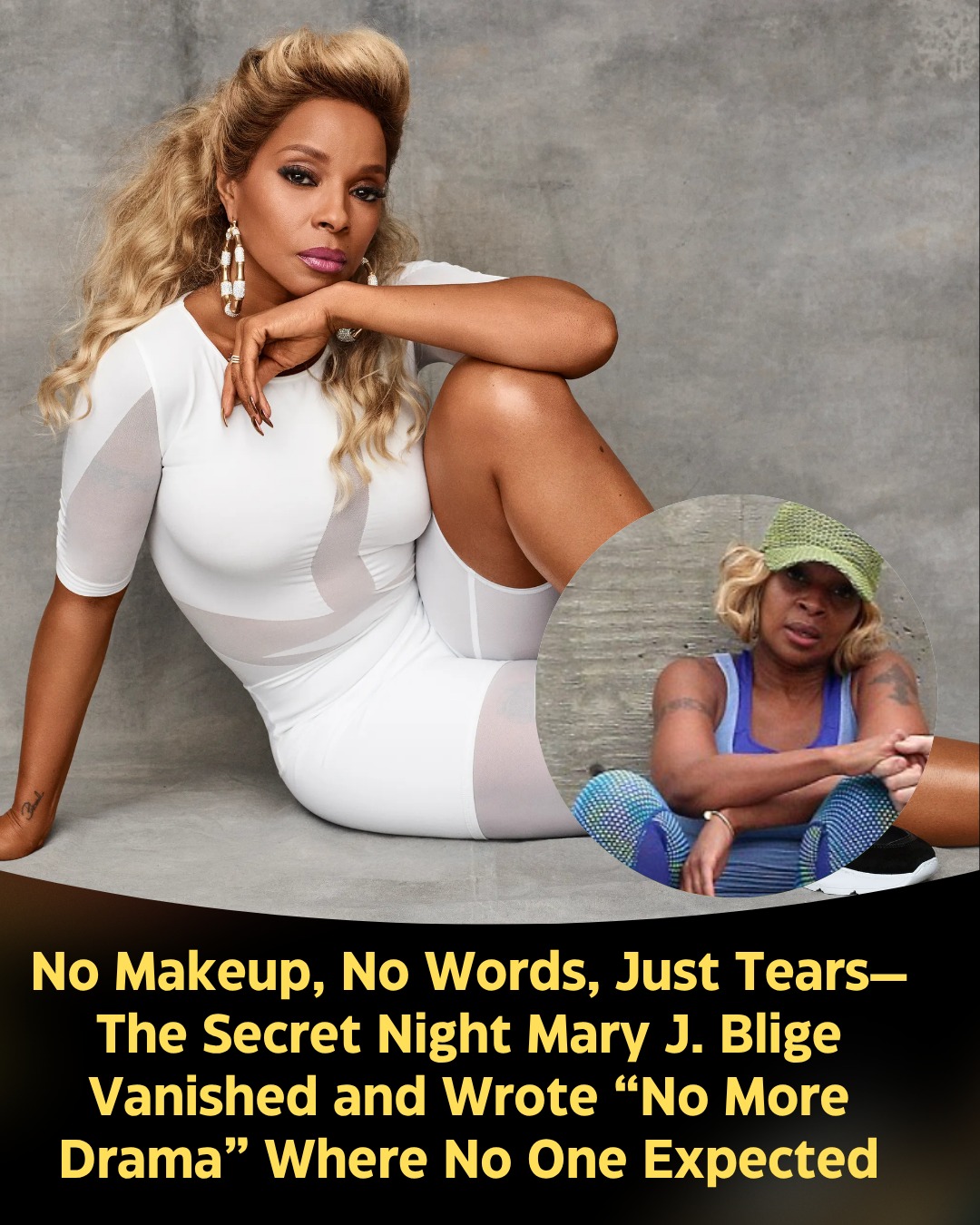
Before the stages, the Grammys, and the adoring fans screaming her name, there was a moment when Mary J. Blige didn’t want to be Mary J. Blige anymore.
It was the late ’90s, and the Queen of Hip-Hop Soul was losing her fight off the stage. Battling depression, addiction, and the crushing weight of fame, she disappeared from the public eye for weeks at a time. But there’s one story she’s only ever hinted at in interviews—the night she had nowhere to go, no strength to get up, and one friend who refused to let
“She showed up at my door. No makeup, no entourage. Just tears,” her best friend once told a source close to the family. “I didn’t ask questions. I just opened the door—and opened my arms.”
For three days, Mary didn’t speak. She slept on her friend’s couch, barely eating, barely moving. When she cried, her friend sat silently by her feet. “No one had ever just let me fall apart before,” Mary would later say. “That couch saved my life.”
It was on that same couch that the first notes of No More Drama were scribbled in a tattered notebook. Mary hadn’t touched music in weeks, but something in the silence cracked her wide open. “I remember she stood up in the middle of the night, still in her hoodie, hair a mess, and she said: ‘I need a pen.’ That was it. That’s how it started,” her friend said.
What came next was the kind of pain you can’t fake—lines that bled straight from the soul: “Broken heart again, another lesson learned…” The friend, who asked not to be named, remembers Mary sitting cross-legged on the carpet, mouthing the words before even setting them to melody.
That friend never asked for credit. She wasn’t in the studio. She didn’t care to be thanked on stage. But she was there in the DNA of every note, in every cry behind Mary’s defiant anthem.
What most fans don’t know is that No More Drama was originally going to be shelved. The label worried it was “too raw” and didn’t fit the radio vibe of the early 2000s. But Mary fought—hard. In one of the fiercest meetings of her career, she slammed the demo on the table and said, “I didn’t survive for silence.”
They listened.
The song went on to become one of the most defining records of Mary’s career—earning her a Grammy nomination, and more importantly, giving voice to millions of women who felt unheard. But it all started on a couch, in a dimly lit apartment in New Jersey, with no plan—just pain.
Years later, when Mary was asked in an interview what love looked like during her darkest days, she didn’t mention a man or a mentor. She simply said, “Love is a couch and someone who holds you when you can’t hold yourself.”
The couch is still there, by the way. Her friend never replaced it—even though Mary offered. “It smells like tears and triumph,” she said. “Why would I ever throw that away?”
Some anthems come from awards. Others come from agony. No More Drama was born from both—but it lived because one woman had the courage to open her door, her arms, and her living room.
And that’s a story no stage will ever fully capture.




